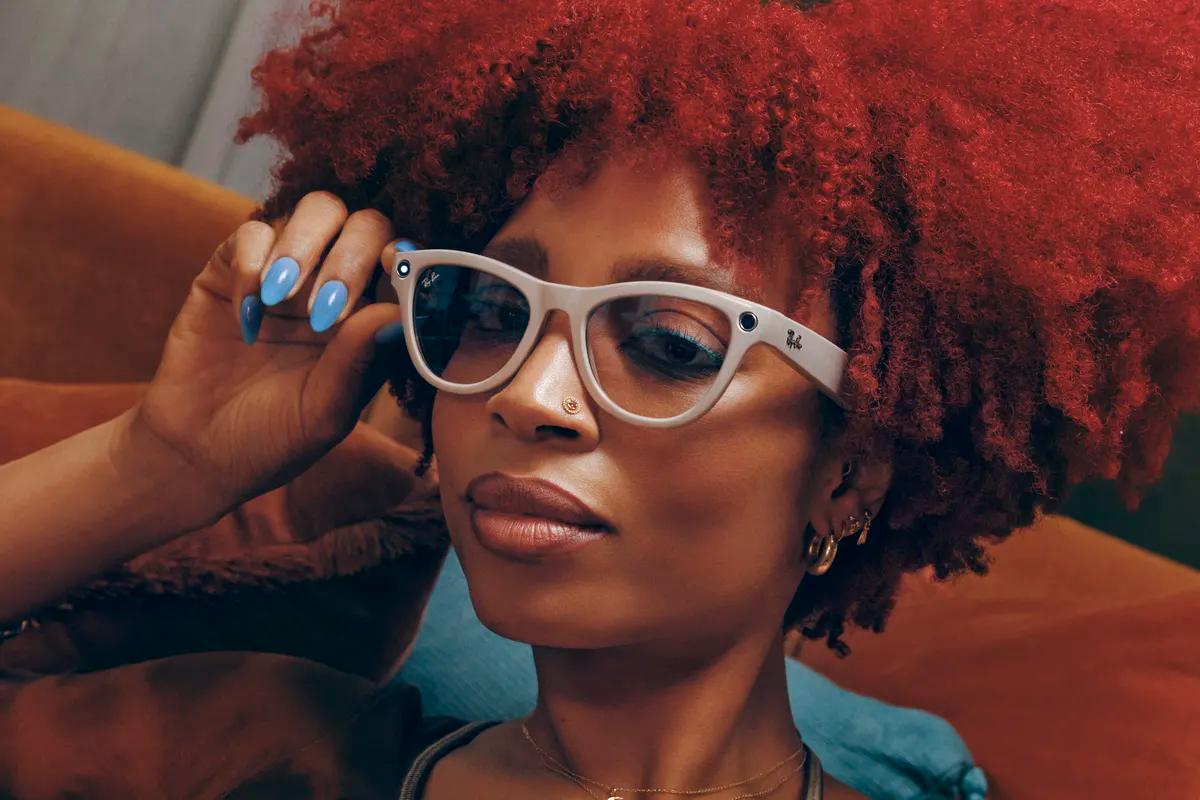The next big luxury personal shopper isn't coming in the form of a human or a chatbot, but a pair of AI-powered Ray-Ban specs.
This week, Meta revealed that its smart glasses, produced in collaboration with classic American eyewear brand Ray-Ban, will now include a personal style feature designed to help users pick and choose their outfits.
Meta caught the attention of fashion connoisseurs last September with the release of the second iteration of its glasses, amplified by viral media campaigns and extensive influencer marketing. Will the new product style feature enjoy similar popularity?
In other Web3 news this week, Ralph Lauren joined the smart mirror alongside AR connoisseur Ffface.me, while Gucci teamed up with South Korean platform Zepeto on a new activation.

What happened: On April 23, tech giant Meta announced new features for its second-generation, AI-powered smart glasses, which launched last September. Starting this week, the product will offer style tips to users in the US and UK.
Dubbed “Meta AI with vision,” users can look in the mirror and ask the glasses for feedback about their outfit. Additionally, they can ask the product to recommend pieces that complement a specific piece of clothing.
The verdict: There is a fundamental shift in the way consumers shop. Emerging advances such as virtual tryouts, AI-style bots, Apple's Vision Pro headset and Meta's assistant point to a future where smart technology plays a crucial role in the shopping experience, whether at home or in store.
However, Meta's wearables are currently encountering challenges in appealing beyond a specific demographic of tech enthusiasts. To reach everyday shoppers, Meta has previously used the cultural influence of popular fashion influencers to endorse its products, a tactic that boosted visibility through algorithms (the fact that Instagram is owned by Meta probably made this easier). Will the company take a similar approach to promoting its new feature?
What happened: Gucci has unveiled a virtual replica of its Parisian travel store, Valigeria, on the popular South Korean gaming platform Zepeto. Inspired by elements from video game titles such as Prop Hunt and Fortnite, players can participate in a hide-and-seek experience where they must match different Gucci bags to avoid the 'Seeker'. At the end of each month, the top three players have a chance to win a Gucci sports bag.
The verdict: Gucci is well-accustomed to the gaming ecosystem, having launched several successful activations in destinations such as Roblox, The Sandbox, and Zepeto. This activation introduces a fresh narrative with new incentives, taking Gucci's game strategy to a new level.
However, due to the lack of widespread promotion, the activation went unnoticed by most consumers, hindering potential engagement and online exposure. Gucci has previously achieved notable levels of engagement with its gaming campaigns, such as the Roblox Gucci Garden initiative, which garnered more than 19 million views, according to metaverse data platform Geeiq. Unfortunately, this project seems to have failed.
What happened: To support the launch of his new fragrance, Ralph Lauren partnered with AR startup Ffface.me on an interactive mirror, located in Macy's New York retail outlet.
Users can interact with the mirror to transform their reflection into a visual representation of the fragrance. They can then scan a QR code to receive the image directly on their phone, allowing them to share their experience with their own online community.
The verdict: AR-powered smart mirrors are poised to become a permanent fixture in brick-and-mortar stores. Its seamless integration and easy-to-use features, which require minimal technology expertise, resonate with luxury brands eager to lure shoppers back to brick-and-mortar locations.
In addition to serving as practical trial assistants and sources of entertainment, these mirrors are also being used to enhance brands' visual merchandising and advertising efforts. For example, Coach placed AR mirrors in the windows of its SoHo store, allowing passers-by to experience the technology before entering.

